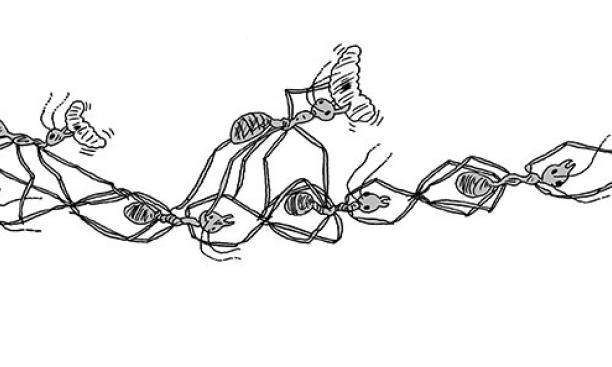
ANTS are known as the ultimate team players, working together diligently for the sake of the colony. Research by ecology and evolutionary biology graduate student Matthew Lutz has found that they work together in more sophisticated ways than scientists previously realized. Studying the so-called “army ants” in Panama, Lutz and Chris Reid of the New Jersey Institute of Technology, along with others, found that the insects self-assembled into chains and bridges to help their brethren get to food more quickly and maximize the number of ants that could forage. They managed these complex computations while only aware of the touch of the ants closest to them and the traffic patterns over their backs. The research was published in the Proceedings of the National Academy of Sciences in December.
Popular kids can start fashion trends, but can they prevent BULLYING? Psychology professor Elizabeth Levy Paluck found that they might be able to. Paluck — along with Hana Shepherd of Rutgers and Peter Aronow of Yale — put students at 56 New Jersey schools through a voluntary training program that spreads anti-violence messages through social media and colored wristbands. The schools saw a 30 percent reduction in conflict, and results were stronger when popular kids were the volunteers, according to findings published in the Proceedings of the National Academy of Sciences in January.
Sensational MEDIA COVERAGE of a disease outbreak might lead to less recall about it. That’s the finding of a study by psychology professor Alin Coman and Jessica Berry ’15, in which subjects were given information about a disease, followed by a statement to induce high or low anxiety. When they later listened to a fake radio broadcast about the disease, those exposed to the high-anxiety message remembered fewer facts. The study was published in Psychological Science in December.
